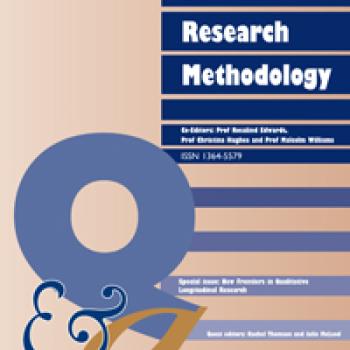
This paper draws on data from Young Lives, a longitudinal study of childhood poverty, to explore how international development research might be strengthened by including qualitative longitudinal research. We review three problems in development studies: a) the relatively low status of qualitative research within the hierarchy of development knowledge, b) the predominance of cross-sectional research, and, c) marginality of research with children and young people. We offer examples from Young Lives research on early marriage in Ethiopia, household poverty dynamics in India and Ethiopia, and aspirations and migration in Peru, to highlight the potential of QLR to address these drawbacks. We suggest that QLR illuminates the dynamic complexities of the processes and practices of everyday life, how they are experienced by children and young people, the responses they make, and the shifting trajectories of their lives.
Keywords: qualitative longitudinal research, children, youth, low income countries, life-course
The final published version of the article is available on the journal website.
Reference:
Virginia Morrow and Gina Crivello. 2015. ‘What is the value of qualitative longitudinal research with children and young people for international development’, International Journal of Social Research Methodology 18 (3): 267-280.

This paper draws on data from Young Lives, a longitudinal study of childhood poverty, to explore how international development research might be strengthened by including qualitative longitudinal research. We review three problems in development studies: a) the relatively low status of qualitative research within the hierarchy of development knowledge, b) the predominance of cross-sectional research, and, c) marginality of research with children and young people. We offer examples from Young Lives research on early marriage in Ethiopia, household poverty dynamics in India and Ethiopia, and aspirations and migration in Peru, to highlight the potential of QLR to address these drawbacks. We suggest that QLR illuminates the dynamic complexities of the processes and practices of everyday life, how they are experienced by children and young people, the responses they make, and the shifting trajectories of their lives.
Keywords: qualitative longitudinal research, children, youth, low income countries, life-course
The final published version of the article is available on the journal website.
Reference:
Virginia Morrow and Gina Crivello. 2015. ‘What is the value of qualitative longitudinal research with children and young people for international development’, International Journal of Social Research Methodology 18 (3): 267-280.

